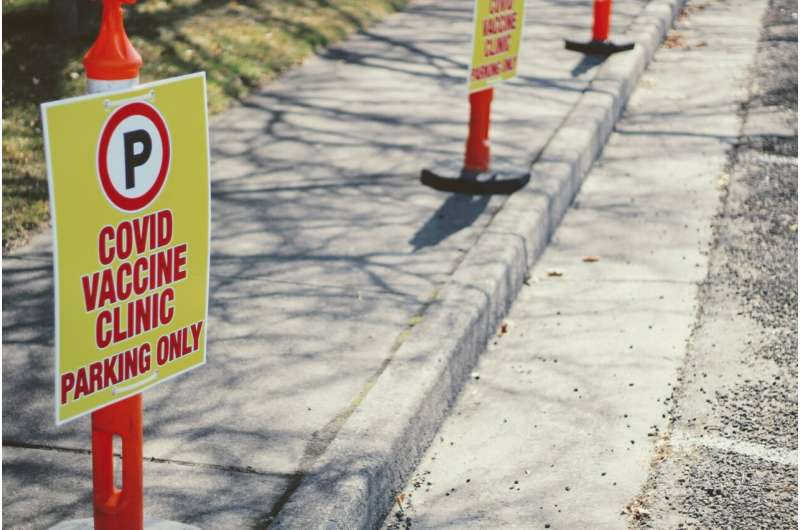Credit: Unsplash/CC0 Public Domain
Researchers assessed Veterans Affairs participants' patterns of coping strategies, as well as the stability and change in strategies, at three timepoints (December 2020 to March 2021) when COVID-19 vaccines became widely available. A total of 2,085 participants completed surveys at any time point during the specified time frame and 930 participants completed all three surveys.
Researchers identified three distinct coping styles: Adaptive, Distressed, and Disengaged. They then assessed stability and change over time in these strategies and found that the majority of the sample (71%) changed their coping style at least once during the study period. Participants who used stable coping styles across all three points reported lower levels of anxiety and depression.
Researchers report that their results do not support patterns of change in coping style in a particular direction (e.g., a trend toward an increase in use of adaptive strategies) but point to potential advantages of stability in coping style. Potentially, less adaptive styles that are more stable may be advantageous for mental health.
The research is published in The Annals of Family Medicine journal.
Family practice has long been an environment in which patients can learn about positive coping strategies. Understanding how coping strategies work together in stressful contexts is important for enhancing opportunities for doctors to support the resilience of patients. Military veterans and individuals with existing health problems have been identified as a potentially high-risk subgroup that may be particularly vulnerable to COVID-19 stressors.
Over the four months of a rapidly changing context for the COVID-19 pandemic, changes in coping style were common. The malleability of coping styles points to practical applications for supporting individuals in developing and engaging in adaptive strategies.
Study results suggest that coping styles are not necessarily evolving in a direction of growth, resilience, or adaptation, making it important to understand how a change in coping styles over time may impact well-being and to support patients during coping with stress.
More information: Jorie M. Butler et al, Veterans and Nonveterans Coping With Stress During 4 Months of COVID-19, The Annals of Family Medicine (2023). DOI: 10.1370/afm.3046
Journal information: Annals of Family Medicine
Provided by American Academy of Family Physicians























